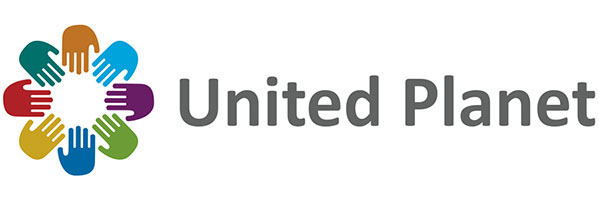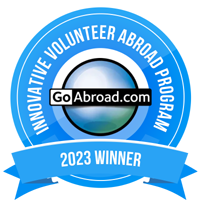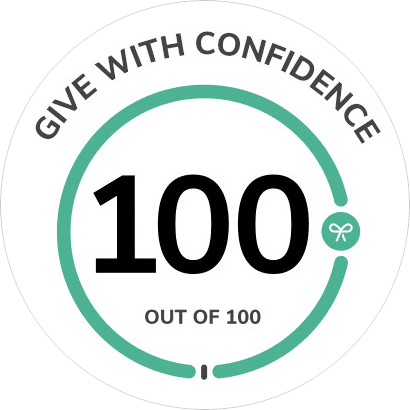United Planet volunteer Garrett Robson recently returned from a month-long volunteer Quest in rural Tanzania, where he worked at an all-girls orphanage in the Iringa region. He sent us this reflection on his time volunteering in Africa, the similarities and differences between cultures, and how just a short time away from home can change your perspective. Thank you Garrett, for your thoughtful words!

Sometimes in life you have to challenge yourself to do something completely different from normal. Something that will encourage you to grow as a person and better understand the people around you. Something that will let you grow and foster your transformation to becoming a more humble human being. Precisely where, when, and what you choose to experience to get you there is completely up to you. For myself, I chose to embark on a one month volunteer trip to rural Tanzania through the United Planet organization.
While I have been lucky enough to visit many international destinations before going to Tanzania (Italy, Brazil, Thailand, just to name a few) I had never gone far off the tourist tracks. This meant that while I was technically in another country, I was always pushed down the track of what the average tourist should be seeing in each country. In some cases there was a little more of the exploration component, but in a lot of cases what I was seeing was best for the wide-eyed gaze of the tourist.
The trip to Tanzania was completely different. First of all, this time I had decided to go as a volunteer. Wanting to challenge myself in a brand new environment and to help out at the same time, this seemed like the perfect way to travel. I was also going for a month, a duration at least twice as long as any vacation I had been on before. So after one chartered shuttle, two plane flights, and an eight-hour bus ride, I had arrived where I had never thought I would be before: the middle of rural Tanzania.
To say that Tanzania is different from most Western nations is a gross underestimation. While the country is a republic that has come a long way in its last fifty years since independence, it is still one of the poorest countries in the world. Despite this, the Tanzanian people are among the nicest people I have ever met. This was accentuated by the country’s culture, which prides itself on slowing down to go through the simple pleasantries of asking how your day is going. There was not a single person I met while in Tanzania that I was ever afraid to say hello to or ask how they were doing. The friendliness was always there and present.
While continuing to look at differences, very few people in rural Tanzania have running water or electricity. An even smaller margin of people have both. Water is raised from wells and used for everything from cooking and laundry to showers. Where there are no lights, people get by with fires, often the same ones used to cook their food. And of course, with no running water there are no flush toilets. Yet, after a while one begins to forget what that is even like.
That memory lapse of how home is continued to be an important experience for me. I remember another volunteer saying that it just becomes second nature after a week, that what you see is all that you expect to ever see. In other words, you get used to what you do have, just like all of the people actually living the rural African lifestyle. The fact that you really begin to enjoy this more simple way of living is proof that you do not really need iPods, TVs, or stereos. Why even have a car when a dala dala ride will take you to the nearest city for under a dollar? The Tanzanians have become masters of this lifestyle and it really is a way of life that deserves to be positively reflected upon.
Having said all of this, the Quest which I went to experience blew me away with how professional and successful it was. I volunteered in the Iringa region, Tanzania, at an orphanage just for girls. What was most amazing about this orphanage was that it had a clear goal and was working steadily towards completing the task. Its main objective is to become self-sufficient, a large task that requires that the orphanage bring in enough money to meet its expenses. Between gardens, solar energy intakes, farming, and creating schools, it is getting closer to completing this goal. Not only this, but the orphanage and its programs are leagues above other orphanages and government based schools and programs.
At the orphanage, the staff, girls, and volunteers all help to rally the community to create a better living environment for all. Their most recent success is the near-complete construction of the Holland House of Books, the first public library in the district. There was even a recent mini-marathon to help raise funds for the construction. Even though this fundraising and construction involved considerable effort from all those who work under the orphanage banner, it has far from fazed them. In fact, there are even plans to build a local orphanage primary school in the area when there is enough money and resources available.
While in Tanzania, I was able to stay both at the orphanage and with a very respectable host family in the local village. While they had electricity, their house was still very different from what I was used to in North America. Throughout this time, I learned a lot about how people live in Tanzania. For instance, parents are greeted with the utmost respect and dinner time is often one of the most important parts of the day. A gathering, as it were, of all family members to discuss the day. Ugali, a traditional East African dish of pounded maize dipped in meat sauces, is loved and is a preferred dinner for most.
Most people in Tanzania, including my host family, love to get around by dala dala. It is a bus that will often seat 15-20 people but always has near double that amount on it at any given time. They are very cheap to ride but will often travel slowly. I was even picked up by one with other volunteers in what seemed like the middle of nowhere sometimes. Holding someone’s chicken or child was also considerably common on the dala dala. In many ways, the dala dala is the lifeblood of the Tanzanian transport network, readily transporting people and supplies wherever they wish to go.
And so despite a lot of differences, I found the similarities to be the most important. We are all human beings after all. Politeness, respect, and a love for laughter ended up being the things I found that united us the most. We may dress differently, speak different languages, and even possess different things, but at the end of the day we are just people trying to live a life. That much we will always have in common. By the end of it, those few differences applied less and less. Especially when I tried on their clothes, attempted to learn their language, and bought items from the same stores they were buying things.
Socrates once said that the unexamined life is not worth living. When it comes to better understanding the cross-cultural differences and similarities that exist between humans, I would like to make a minor modification: a life without experiences is not worth living. What you choose to define as experience is up to you, but for myself, experiencing Tanzania through volunteering really made me reflect, as Socrates had always intended, on the way other cultures choose to live their life. I would only hope that everyone should live to have their own deeply reflective experiences.
Onwards,
Garrett
ABOUT UNITED PLANET
United Planet is a non-profit organization with a mission to create a global community, one relationship at a time. Established in 2001, United Planet offers volunteer abroad, virtual internships, internships abroad, gap year volunteering, and global virtual exchange in more than 40 countries.







2 comments. Leave new
I love your blog!!!!! I’ve been to Tanzania twice now…and going back in December to stay for several months to volunteer. I also fell in love with the people!!!! The wildlife, landscape are phenominal, but the people are just extraordinary. Family & some friends don’t understand what it is that’s pulling me towards Tanzania and the people there….thank you for sharing your thoughts!!!! I can identify!!!
Love your words. Believe these words breed from your valuable experience and from the depth of your heart. Your experience motivates me and gives me direction. Thank you.